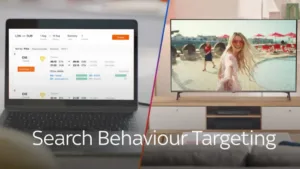The government is poised to announce a ban on junk food advertising online and before 9pm on TV from 2023, as they look to deliver on their pledge to tackle the UK’s growing obesity crisis.
The new measures, which will be some of the toughest marketing restrictions in the world, will heavily impact the more than £600m spent by brands on all food advertising online and on TV annually. Of that figure, it is estimated that more than £400m is spent online.
Jon Mew, CEO, IAB UK: I am staggered that, in the face of so much evidence showing that it will have next to no impact on childhood obesity rates, the Government continues to pursue headline-grabbing, hollow actions with today’s confirmation of an HFSS online advertising ban.
For months, we have been calling on the Government to work with us to build on the progress of existing regulatory requirements that protect children with smarter, digital-first solutions. The proposal we put forward as an alternative to the ban would further restrict children’s already limited exposure to HFSS ads online, without inflicting unnecessary damage on the advertising, media and hospitality industries.
The Government is pressing ahead with a bad policy that creates an unequal media landscape and, in reality, will do little to improve the critical issue of childhood obesity.
Sue Eustace, Public Affairs Director, Advertising Association.
We are dismayed Government is moving ahead with its HFSS ad ban on TV before the 9pm watershed and increased restrictions online. This means many food & drink companies won’t be able to advertise new product innovations and reformulations and larger food-on-the-go, pub and restaurant chains may not be able to tell their customers about their menus. Content providers – online publishers and broadcasters – will lose vital advertising revenue to fund jobs in editorial and programme-making. We all want to see a healthier, more active population, but the Government’s own analysis shows these measures won’t work. Levelling up society will not be achieved by punishing some of the UK’s most successful industries for minimal effect on obesity levels.
ISBA’s Director-General, Phil Smith
Advertisers agree that Britain has an obesity problem and that action must be taken. But in seeking to regulate rather than innovate, government has tied itself in knots.
There is no evidence that what Ministers are proposing will have any meaningful impact on children’s health. The possibilities of technology have been ignored, and industry’s attempts to deliver the desired outcome in a way that would also prevent economic harm to business have been waved away.
“We will look carefully at the detail, but at a moment which calls for economic recovery and serious, evidence-based policy to improve children’s health, it seems that government has plumped for headlines over meaningful reform.
IPA Legal & Public Affairs Director Richard Lindsay
“As Government is very aware, the ad bans it will be imposing will have no effect on the serious problem of childhood obesity. The bans will grab headlines and suggest that Government is doing ‘something’, but what it is doing is misguided and will serve only to damage businesses, not protect children’s health. A TV watershed restriction will not target children and an online ban ignores more effective measures that would see technology being harnessed to reduce children’s exposure to certain types of ads without damaging businesses. The devil will be in the detail, but loud headlines do not mean good policy.”









